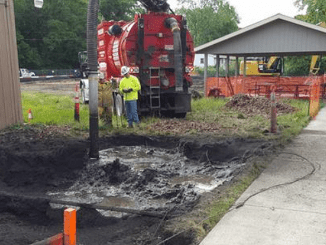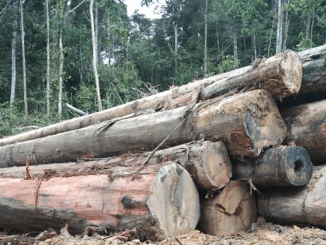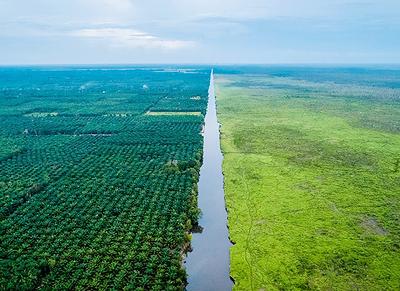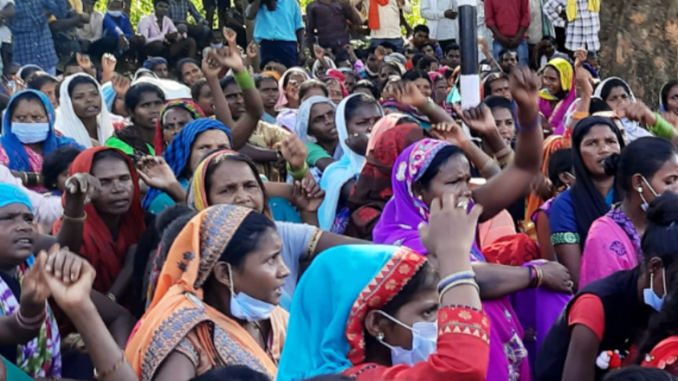
JAIPUR, Rajasthan, India, April 21, 2022 (ENS) – State governments in India have approved two giant new coal projects on the land of the Adivasi Indigenous people, defying a determined and outspoken Adivasi resistance movement. The unique Hasdeo Forest in the state of Chhattisgarh, home to 20,000 Adivasi people, wild elephants, endangered species and medicinal plants, is at risk for a big increase in coal mining.
The controversial mine is located in the biodiversity-rich, densely forested Hasdeo-Arand area of central India. Villagers have repeatedly protested against the existing coal mine for years, and against other proposals to mine the Hasdeo-Arand coalfield, one of the biggest coal reserves in India.
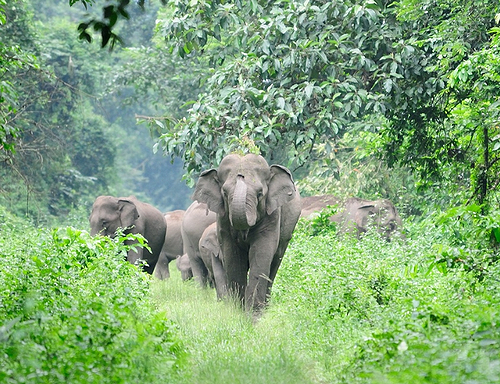
The dense forest of Hasdeo Arand is inhabited by 34 species of mammals, including tigers, leopards, and rare sloth bears; 14 species of reptiles; 111 species of birds; and 29 species of fish. These creatures live among the 86 species of trees, the 51 species of medicinal plants, 19 species of herbs, and 12 species of grass in the forest.
Late last month, two neighboring states agreed to approve the coal mining expansion. On March 25, the state of Rajasthan’s Chief Minister Ashok Gehlot met in person with Chief Minister Bhupesh Baghel of neighboring Chhattisgarh to decide on approval to mine the coal reserves to meet Rajasthan’s electricity requirements.
The following day, the Chhattisgarh government granted permission to the electric generation company owned by the Rajasthan State Government, Rajasthan Rajya Vidyut Utpadan Nigam, to mine coal in a 1,136 hectare area under the second phase of the Parsa East-Kete Basan, or PEKB, coal mine.
This 15 million ton-per-year coal mine is operated by Adani Mining, a subsidiary of the privately-held Adani Group, an Indian multinational conglomerate headquartered in Ahmedabad.
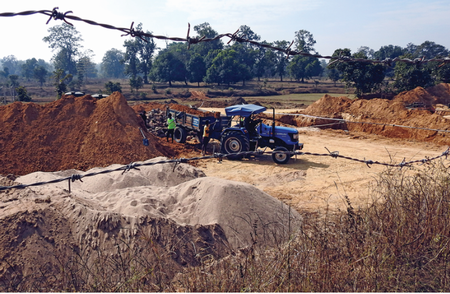
The mine at issue lies on the Hasdeo-Arand coalfield, which totals 5.5 billion tons of coal reserves. The existing PEKB mine, which has already destroyed lands vital to thousands of Adivasi people living in Hasdeo, will be expanded, displacing many people and destroying forested lands.
Large numbers of Adivasi people are staging an indefinite protest in Hasdeo.
Muneshwar Porte, an Adivasi man from Fatehpur village, which is now slated to be destroyed for the mine, said, “We are facing a critical situation now and so we are doing an indefinite protest. If our lands are taken away, our future generations will lose their identity and our existence will be lost forever.”
Besides the destruction of people’s lands and livelihoods, 200,000 trees will be felled, according to the international nonprofit Survival International, which supports the protesting villagers.
Dr. Jo Woodman of Survival International said, “The Adivasi people of Hasdeo have spent a decade knocking with all their might on every door to protect their sacred and vital forest, including marching 300km to meet the Chief Minister. But the government has chosen to prioritize coal mining above the rights of Indigenous people and India’s Constitution and laws.”
“It’s also catastrophic for the fight against climate change,” said Dr. Woodman. “The Adivasis, the true owners of Hasdeo Forest, are stepping up their brave resistance to mining that they have not consented to. Standing with them as they defend the forest and strive to keep the coal in the ground should be a global priority.”
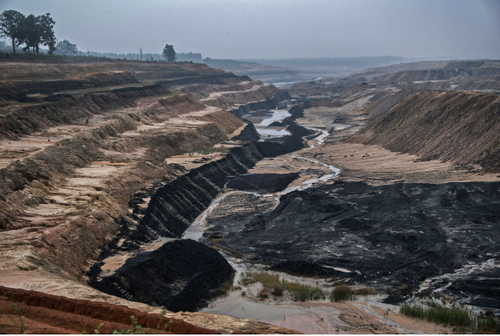
Survival International maintains that Rajasthan is rich in solar power potential and doesn’t really need the five million tonnes of coal a year over 45 years the Parsa mine expansion is expected to produce.
India has tried to protect this unique forest in the recent past. In 2007, the Chhattisgarh government promised to develop an elephant reserve to preserve the Hasdeo Arand forest and to reduce human-animal conflict in the area, state government officials said. But that promise was short-lived, and now elephants and Indigenous people are both taking second place to coal.
There have been other attempts at forest protection, too. Hasdeo Arand was declared a no-go zone for coal mining in 2010 by then Environment Minister Jairam Ramesh, but the move was later discarded by a group of ministers headed by then Finance Minister Pranab Mukherjee.
Under Indian law, mines on Adivasi land should not go ahead without the people’s consent. Claims that communities have consented to the Parsa mine have been contested by the people themselves, who have labelled them “fake.”
Chhattisgarh Governor Anusuiya Uikey had promised to launch an inquiry into how the “consents” were obtained, but the state government has now approved the mining project anyway.
“For us tribals, the entire Hasdeo Arand forest is like our bank account. We depend completely on it for food and fodder. We will be devastated if we are thrown out of our forest,” said Ramlal Karyam, who went to Delhi to meet Congress leaders last October, the “Hindustan Times” reported.
Featured image: Adivasi people rally, calling on the national Congress chief minister to protect their lands from Adani coal mines. October 2021 (Photo courtesy Adani Watch)

